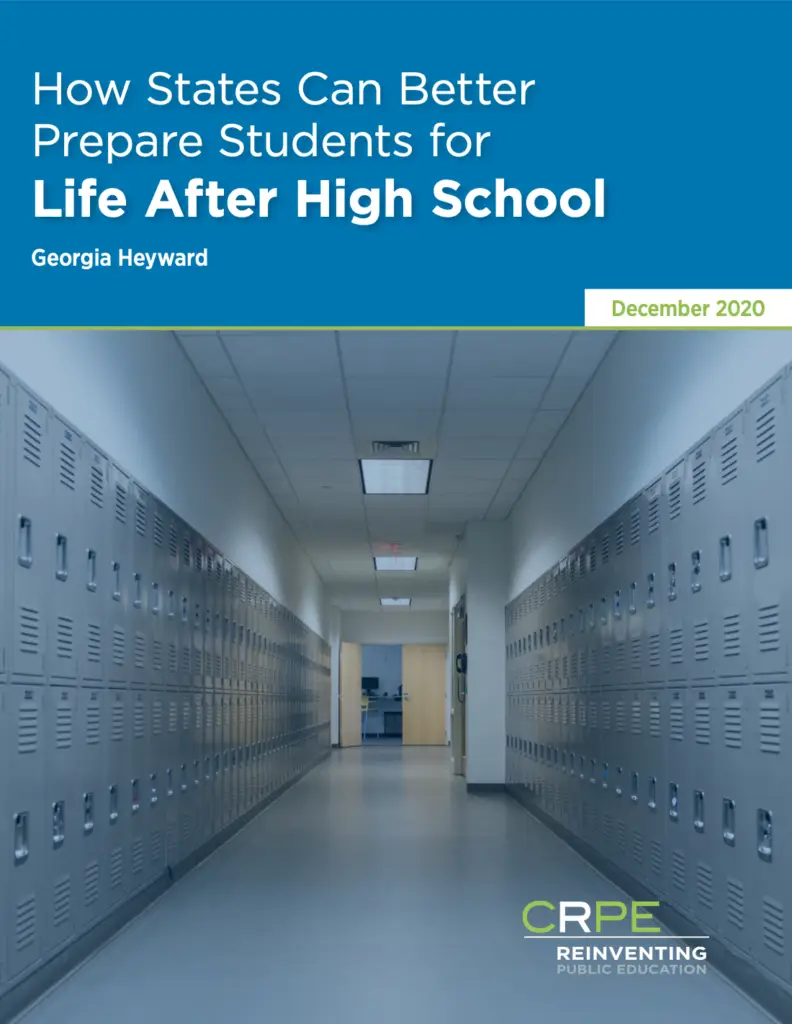Read the Executive Summary.
COVID-19 caused students across the country to postpone or change their plans for college while simultaneously dampening job prospects. Hardest hit are families in poverty and students of color, both educationally and economically.
Career pathways that include college and career preparation in high school can benefit students, but for that to happen states must do more. This report examines the weaknesses states share that impede quality of and access to career and technical education, including misaligned credit award and funding policies, and weak career accountability and information systems.
Examples from leading states suggest how state policy can better support career education. We recommend states take these four steps to create a more coherent system that prepares students for life after graduation:
- Support districts to conduct analysis, form industry partnerships, and scale innovation.
- Revise state policies that pose barriers to real-world and postsecondary learning.
- Deliver consistent information about available programs and careers.
- Hold all providers accountable to academic, professional, and postsecondary outcomes.




